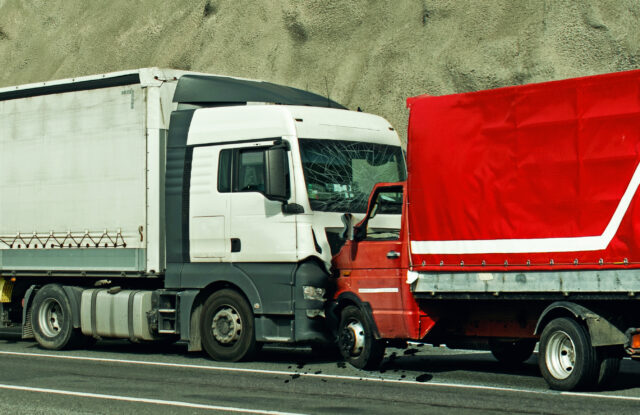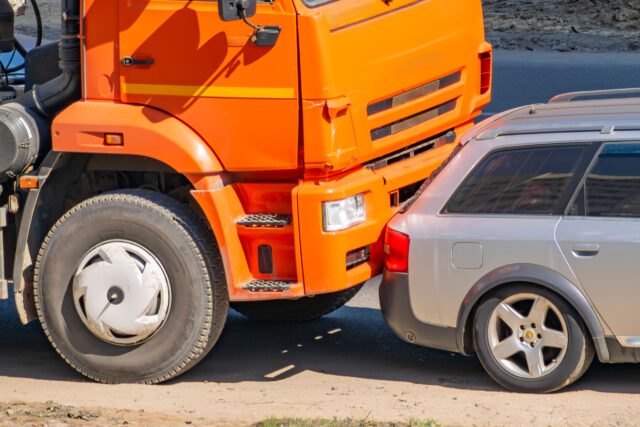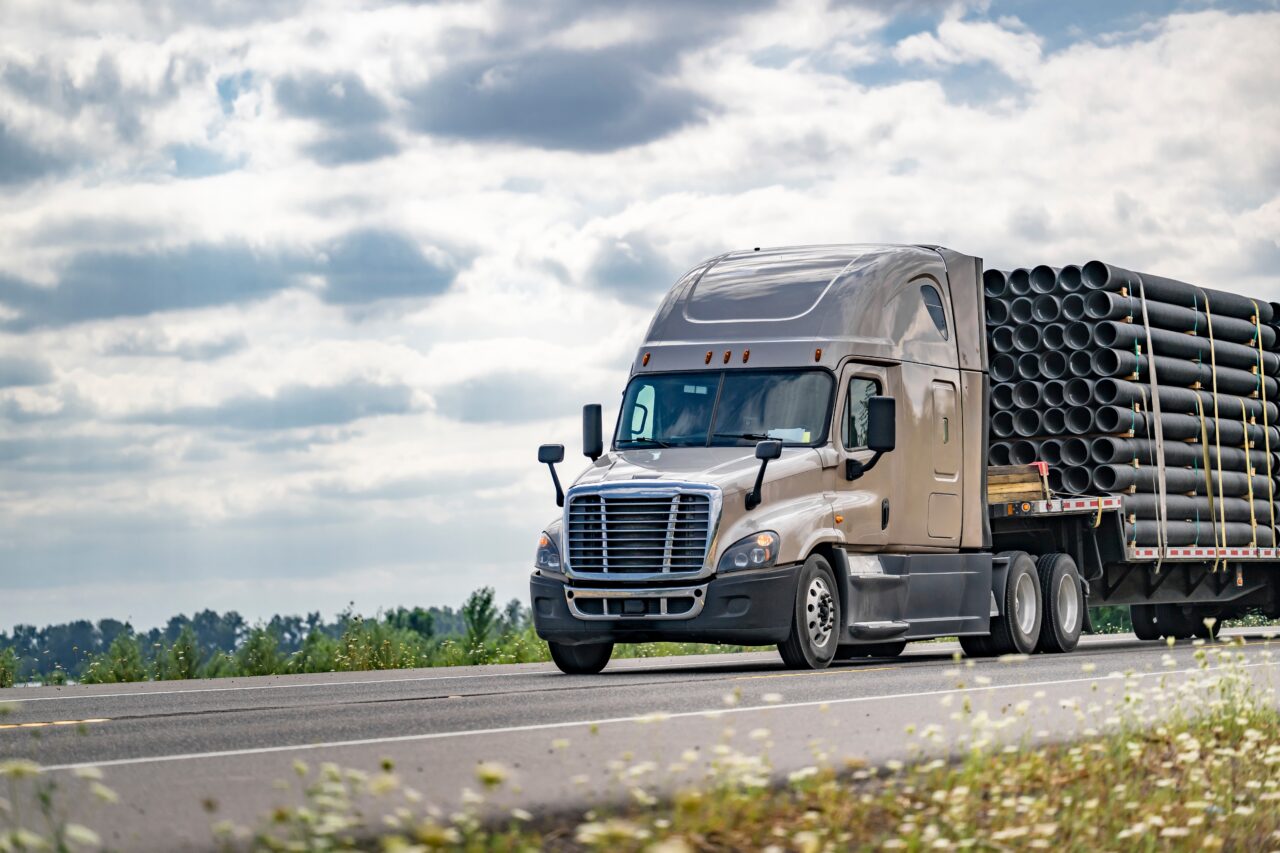Truck jackknife accidents are some of the most dangerous collisions on the roads around Rogers and Northwest Arkansas. These accidents often involve commercial vehicles, highways like I-49 or U.S. Route 71, and result in serious injuries.
The damage is not just physical. Medical bills, insurance claims, and time away from work all follow. Figuring out what the legal steps are to take after a truck jackknife accident is no easy task.
Most people have never been in this situation before. The legal system can seem distant and cold. But your choices over the next few weeks matter—and speaking with an experienced Arkansas truck accident lawyer can make all the difference.
How Arkansas Law Defines a Jackknife Accident
Arkansas law treats jackknife accidents as serious commercial vehicle events. The state requires trucking companies to meet safety rules set by the Arkansas Department of Transportation (ARDOT) and the Federal Motor Carrier Safety Administration (FMCSA).
When a trailer swings out and folds against the cab, it can block several lanes. These wrecks often involve multiple cars.
Here are some legal points about jackknife accidents in Arkansas to know:
- Truck drivers must follow stricter driving limits than car drivers. They have rules about sleep, speed, and inspection.
- Commercial trucks carry higher insurance minimums, which means your claim may be worth more if they were at fault.
- Comparative fault laws in Arkansas allow for financial recovery even if you were partly responsible, as long as you were less than 50% at fault.
- According to Arkansas’ personal injury statute of limitations, legal claims must be filed within three years of the accident.
- Liability may extend beyond the driver, such as to the trucking company, maintenance team, or cargo loader.
Understanding these laws helps set expectations. You may need to deal with multiple insurance companies or gather data from a trucking company’s logbooks. These are not simple cases.
What Causes a Truck to Jackknife?
Before taking legal steps, it helps to understand what led to the crash. Jackknife accidents happen when the trailer swings out from behind the cab, often at high speeds or during sudden braking.
The driver doesn’t always cause them. Road conditions, maintenance problems, or faulty brakes could all play a part.
Here are common reasons these accidents happen:
- Sudden or improper braking, especially on wet or icy roads
- Speeding or driving too fast for road conditions
- Mechanical issues such as worn tires, faulty brakes, or a locked axle
- Unbalanced or shifting cargo inside the trailer
- Driver fatigue from working beyond allowed hours
- Poor weather or slippery roads, especially in Northwest Arkansas winters
If you suspect any of these played a role in your crash, that information could become part of your legal claim. Your lawyer may need to hire an accident reconstruction expert or request driver logs and maintenance reports.
Legal Steps to Take in the Weeks After a Jackknife Truck Accident
 The first few days after the crash involve medical care and basic insurance contact. But what comes after that?
The first few days after the crash involve medical care and basic insurance contact. But what comes after that?
These are the key actions to consider:
- Collect and organize your records: Save your medical records, photos, police reports, and anything else connected to the accident.
- Write a daily journal: Describe your pain levels, how your injuries affect your daily life, and how long you’ve missed work.
- Avoid speaking to the trucking company’s insurance adjuster without legal help. Their goal is to limit payouts.
- Request a copy of the police crash report, which you can obtain through the Arkansas State Police or local department in Rogers.
- File your PIP (personal injury protection) claim with your own insurer, even if another driver was at fault. Arkansas is an optional no-fault state, so your coverage may include PIP.
- Stay off social media, especially when talking about your accident or recovery. Insurance adjusters often check public posts.
- Begin tracking all financial losses, including gas to medical visits, prescription receipts, and lost income.
Doing these things early keeps your case organized. You don’t want to search for documents months later or forget important details.
How Fault is Determined After a Jackknife Wreck in Arkansas
Arkansas follows a modified comparative negligence rule. This means you can still get compensation even if you were partly at fault. But you cannot recover damages if you are 50% or more responsible. This rule makes proper evidence gathering even more critical.
To determine fault, legal teams often use:
- Eyewitness statements
- Dashcam or traffic camera footage
- Electronic Logging Device (ELD) data from the truck
- Maintenance logs and inspection reports
- Driver history and past violations
- Accident reconstruction reports
Liability might belong to more than one party. For example, if a trucking company forced a driver to skip sleep or skipped a brake inspection, they could share blame. Arkansas law allows lawsuits against all parties who contributed to the harm.
What Can You Be Compensated for After a Truck Crash?
Truck wrecks are usually more severe than typical car accidents. Medical bills can be high, and recovery takes time. If someone else caused the crash, the law allows you to seek money for your losses.
These are common forms of compensation in truck accident claims:
- Medical expenses, including hospital stays, surgery, and follow-up care
- Physical therapy and rehabilitation costs
- Lost wages and reduced earning ability
- Pain and suffering, both physical and emotional
- Loss of enjoyment of life, such as missing hobbies or family activities
- Property damage to your vehicle or belongings
- Future medical care if your injuries are long-term or permanent
In Arkansas, juries or insurers use documents and testimony to calculate these amounts. Keeping a well-organized file helps your lawyer present a straightforward claim.
If your injuries have lasting effects, you may also need medical experts to estimate your future costs.
What to Do If You Were Hit by a Commercial Truck in Rogers or Benton County
If your crash happened in Rogers or nearby areas like Bentonville, Springdale, or Fayetteville, you should know that different agencies may be involved.
These steps are important if the crash happened in this region:
- Request video footage from nearby traffic cameras or local businesses
- Contact local hospitals to collect treatment records, including Mercy Hospital Northwest in Rogers
- Check with the City of Rogers or Benton County for road maintenance history, especially if poor road conditions contributed
- Save any communication from the trucking company or its insurer
- Ask about weigh station reports, which may show if the truck was carrying too much weight
Local knowledge matters. A wreck on I-49 has different conditions than one on Highway 62 or a rural route in Washington County. Weather patterns, traffic volume, and speed limits all affect the details of the case.
The Importance of Preserving Evidence in a Truck Accident Case
Preserving evidence is one of the most important things you can do in the weeks following a jackknife accident. Large trucking companies often act quickly to protect themselves.
They may send investigators to the scene or repair the vehicle before anyone else sees it. If you wait too long, valuable evidence could disappear.
Here are the types of evidence to secure or request:
- The truck’s black box data, which records speed, braking, and steering inputs
- Electronic Logging Device (ELD) records that show how long the driver had been on duty
- Maintenance and inspection logs kept by the trucking company
- Photos or videos of the crash scene, including skid marks, damage to guardrails, or debris
- Medical records from every visit, even follow-up appointments
- Employment records if the accident caused you to miss work
It’s wise to send a spoliation letter to the trucking company early. This letter tells them not to destroy or alter any evidence. It’s one of the first things a lawyer can do on your behalf.
Dealing With Insurance Adjusters After a Jackknife Accident
Insurance companies often reach out quickly. They may seem friendly and helpful, but they aim to settle fast and pay as little as possible. If you are not ready, you may say something that damages your claim.
Here’s how to protect yourself during these conversations:
- Do not give a recorded statement to the trucking company’s insurer without legal advice
- Only provide basic details like your name, contact info, and where the crash happened
- Avoid discussing fault or guessing what happened
- Decline to sign medical release forms that give full access to your health history
- Keep a written record of every conversation, including names, dates, and summaries
Arkansas insurance adjusters are trained to find reasons to reduce your payout. They may offer a low settlement while you are still in pain or unsure how long recovery will take.
Take your time. Get medical opinions. Talk to someone who knows how trucking claims work.
When to Start a Lawsuit After a Truck Jackknife Crash
Not every claim goes to court. Many settle during the claims process. But some cases require a formal lawsuit. In Arkansas, you generally have three years from the crash date to file.
However, it’s not wise to wait that long. The earlier you begin, the stronger your case will be.
You may want to consider filing a lawsuit if:
- The insurance company refuses to offer fair compensation
- The truck driver or company denies fault
- You suffered serious or long-term injuries
- There are multiple liable parties, such as a cargo loader or maintenance team
- The other party destroyed or hid evidence
Filing a lawsuit doesn’t mean you’ll end up in court. Often, it’s a way to apply pressure and gain access to important evidence through a legal process called discovery. Many lawsuits settle after this stage.
How Long Does a Truck Accident Claim Take in Arkansas?
There’s no set timeline for these claims. Some resolve in a few months. Others take a year or longer, especially if your injuries are still healing or the case involves multiple parties.
Factors that affect the timeline include:
- The severity of your injuries and length of treatment
- How clear the fault is and whether liability is disputed
- How quickly evidence is gathered and reviewed
- The willingness of the insurer to negotiate in good faith
- Whether a lawsuit is filed and how the court schedule looks in your county
While this process takes time, moving quickly at the start helps. Don’t wait to gather records or talk to someone about your options. The trucking company likely already has a legal team working on their side.
Common Mistakes to Avoid After a Jackknife Truck Accident
 Even small choices can affect your case. Avoiding these mistakes keeps your claim on solid ground:
Even small choices can affect your case. Avoiding these mistakes keeps your claim on solid ground:
- Waiting too long to see a doctor, creates gaps in your medical records
- Posting updates or photos on social media, especially about vacations or physical activity
- Talking to multiple insurance companies without knowing your rights
- Throwing away documents, bills, or receipts
- Trusting that the trucking company will do the right thing without pressure
People often want to move on quickly. That’s understandable. But these cases are about more than compensation. They are about long-term financial security. You may face bills for years. A rushed decision now can lead to stress later.
What to Do Next
If you were in a jackknife accident involving a commercial truck, you have a legal right to seek help. Arkansas law protects injured drivers and passengers. The road to recovery is not just medical.
It’s financial and legal, too. The steps you take over the next few weeks can protect your future. If your accident happened in Fort Smith, Rogers, Fayetteville, or Jonesboro, speak with experienced Arkansas personal injury lawyers who handle these types of cases every day.
Caddell Reynolds Law Firm has helped injured people across Arkansas recover from serious truck crashes. Call (479) 252-9303 to learn your options in a free consultation.

